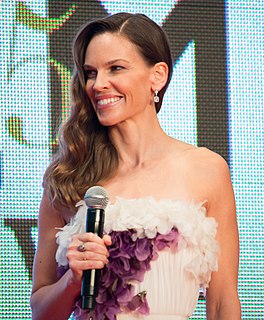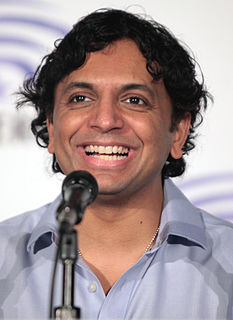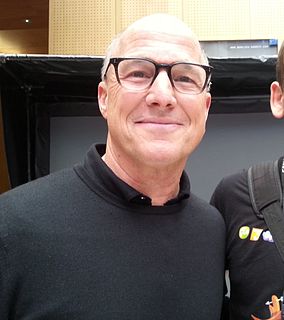A Quote by Jason Blum
The model we established was to give creative people complete creative freedom in exchange for betting on themselves, so they work for the minimums you're allowed to work for, and if the movies work in a big way, everyone does very well. If the movies don't, nobody loses too much money. The benefit to doing all the movies low budget is we can tell different types of stories and take creative risks. The Purge would have been irresponsible to do for $20M, but to do it for $3M makes sense.
Quote Topics
Allowed
Been
Benefit
Betting
Big
Budget
Complete
Creative
Creative Freedom
Creative People
Different
Different Types
Does
Doing
Established
Everyone
Exchange
Freedom
Give
Irresponsible
Loses
Low
Makes
Model
Money
Movies
Much
Nobody
People
Purge
Risks
Sense
Stories
Take
Tell
Themselves
Too
Too Much
Too Much Money
Types
Very
Way
Well
Work
Would
Related Quotes
You're not always going to hit the bull's-eye. I'm going to make movies that work and I'm going to make movies that don't work, and that's just a part of being creative. Because really, I think if you're taking risks and you're pushing yourself and you're doing things that scare you, you are going to fall on your face, and it's not always going to work.
When you raise the budget, you make creative compromises. The higher the budget goes, the more cuts in your movie happen. When people talk about how movies are watered down, that's a direct reflection of money and budget. The less money you spend; the more risks you can take. That doesn't mean it will be successful, but at least you can try different stuff. The higher your budget is, the less you can do that.
Nowadays the movies that people are going to see in the theaters are the big-event movies, like Spider-Man or something, or they're 25-year-old models who are vampires, or they're very broad comedies, or they're standard action movies. So if you're going to work for a studio and do a movie for the budget that the movie needs, those are the kinds of movies you'll be in.
Everyone is creative, but me and my colleagues are using a different definition of creativity than is implied when people say they are not creative. We believe that people are being creative if they are bringing out their highest inner resources to improve their lives and those around them. Those who are living from their core, and doing what they are destined to do, are being creative, no matter how mundane their work or profession might seem.
The creative process is a very collaborative process. I know it might seem that way because so much ink is spilled and the media is obsessed with business and numbers and studios... but filmmakers don't think of it that way. We just go off and we tell our stories. It's the same torture that we adore, it's the same torture that our forefathers endured making movies in the golden era of Hollywood. So, from my perspective it's no different, I'm sure, from the men and women who I admire so much who made the earliest movies.
I think one of my favorite things about making low budget movies is that when you get into expensive moviemaking territory, it's almost impossible not to reverse engineer the movies. It's irresponsible not to think about the result and the financial result. But when you make low budget movies, you can put that out of your head.
When you have creative people, you have to let them do their thing. You have to resist the urge to be too efficient, you have to resist the urge to work to a certain budget and schedule - other than the fact that things have to end. It's harder work to produce this way but my philosophy is that you have to let it be creatively chaotic and let it find its place. When creative people are on to something, you know it and you have to allow it to happen. You can't set a schedule for that.
If I read a script and the subject stays with me - then that's when I want to go to work. Before, I was very addicted to being on set, and I was doing three or four movies a year for many years. Now, fortunately, I can go to work only when I am passionate about a project, and the rest of the time, I can live my life. I'm not interested in doing movies just as a marathon. When I go to work now, I have much more to give. But the other way, you get empty.
It's a tough time for screenwriters right now, because fewer movies are getting made. I'm enjoying television so much. It offers opportunities for writers to be in a writers' room and work their way up. It's somewhat easier because there's more of a community. There are so many screenwriters with incredible stories to tell, so I hope there will be some kind of shift in the business where very few types of movies are now made by the studios. There needs to be different budgets for different audiences; not everything having to be a huge opening weekend.































